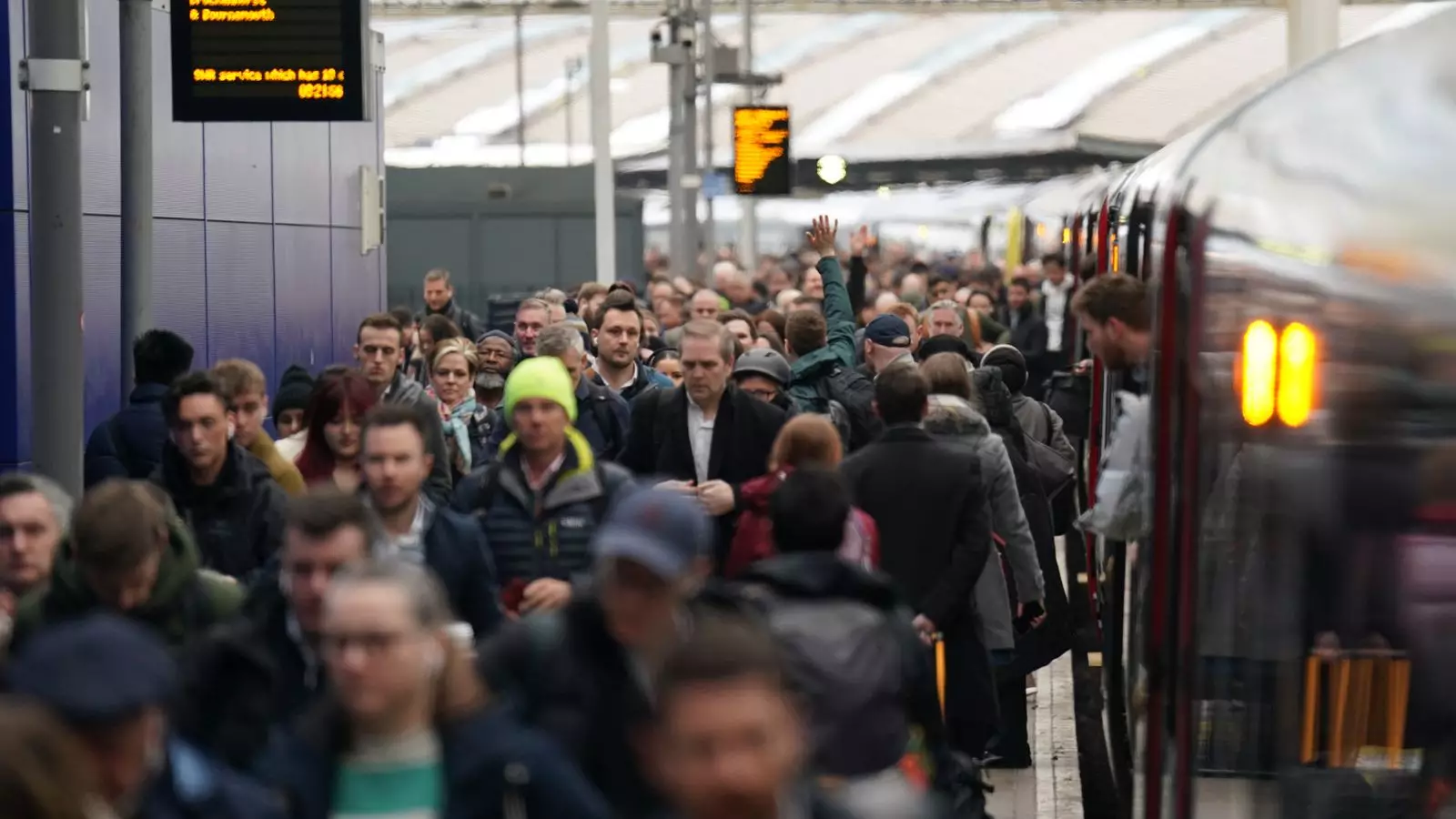It comes as no surprise that cash-strapped train travellers in England and Wales are feeling the pinch as fares continue to rise. The recent hike of nearly 5% in rail fares has left many passengers struggling to afford their daily commute. With high levels of cancellations and disruptions in the network, passengers are feeling like they are being punished for simply trying to get from point A to point B.
Campaigners have voiced their concerns over the continuous fare rises, arguing that passengers are already facing a “cost-of-living crisis” and a “climate emergency”. The Government’s decision to increase regulated rail fares by 4.9% has left many feeling frustrated and angry. As prices continue to soar, the fear is that more and more passengers will opt for other modes of transportation such as driving or flying, leading to further negative consequences for the environment and the economy.
The current state of the railway network in England and Wales is less than ideal, with rail services facing numerous disruptions and cancellations. Despite the high prices of tickets, passengers are not receiving the level of service they expect and deserve. With the continuous increase in fares, there is a growing sentiment of dissatisfaction among passengers who feel like they are paying more for less.
Labour has vowed to bring the railways back into public ownership as contracts expire, highlighting the lack of accountability in the current system. The shadow transport secretary, Louise Haigh, criticized the Tories for hiking fares by almost twice as much as wages since coming to power in 2010. The government, on the other hand, insists that they are attempting to strike a balance between the taxpayer and the fare payer, with price rises being “well below inflation”.
As train fares continue to rise, the impact on passengers and the environment becomes more evident. Passengers are being priced off the railways, forcing them to seek alternative modes of transportation. This not only affects personal finances but also has wider implications for the economy and the environment. The increase in car usage and air travel due to expensive train fares contributes to carbon emissions and air pollution, further exacerbating the climate crisis.
The rising cost of train travel in England and Wales is a pressing issue that needs to be addressed. Passengers are feeling the burden of continuous fare hikes, coupled with poor rail services and disruptions. As the government grapples with finding a balance between funding train operators and keeping fares affordable for passengers, it is crucial to prioritize the needs of the public. Only through investment in the railway network, better regulation of fares, and improved services can we ensure that train travel remains a viable and sustainable option for all.

Leave a Reply